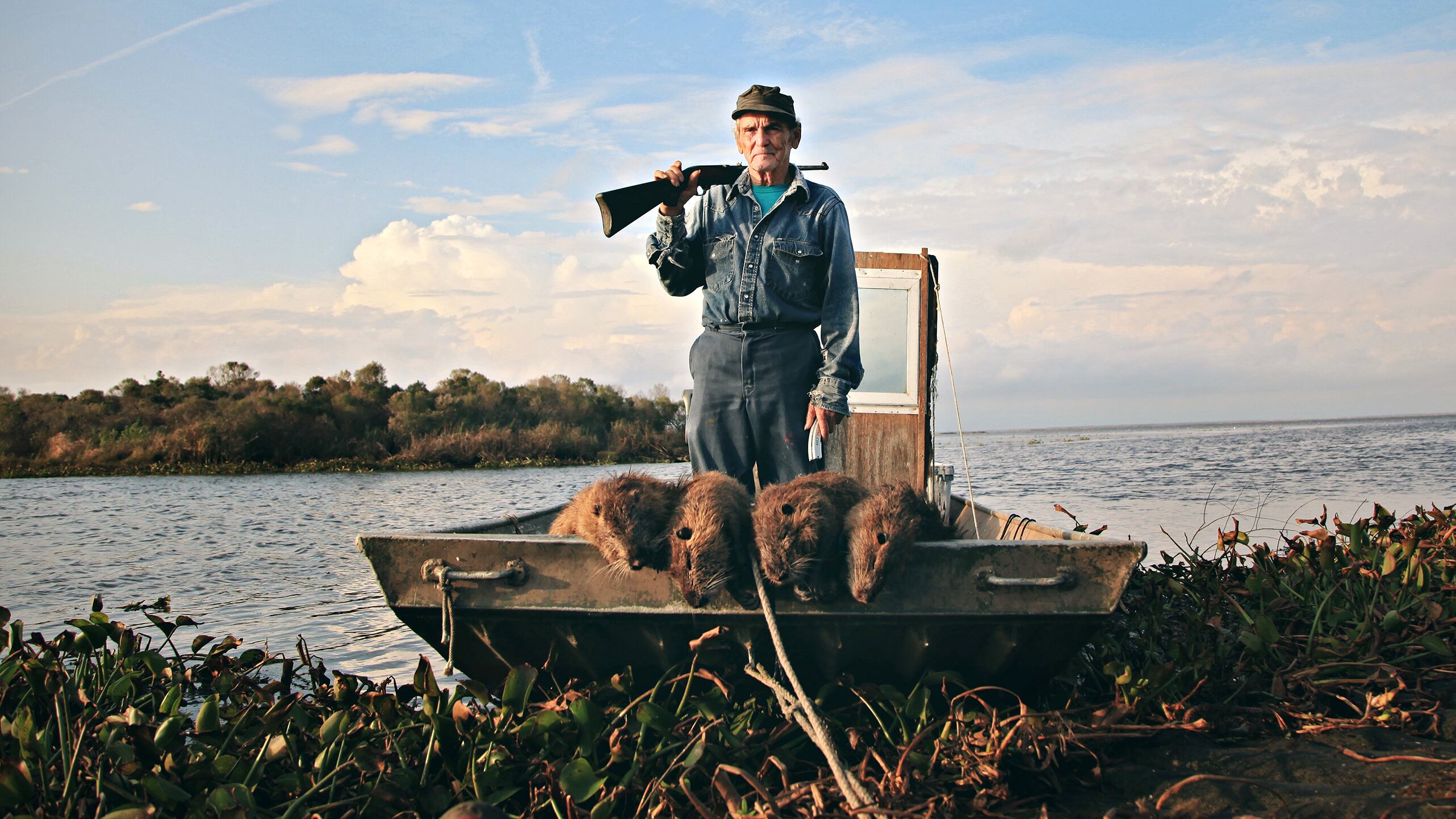Award-winning documentarian Chris Metzler actually began his career working on B-movie spectacles about bizarre topics like man-eating ants that would become a surprisingly not-so-odd harbinger of his latest release: Rodents of Unusual Size. While he's used film to examine everything from a punk band to a deteriorating man-made lake, the story of the Argentine coypu escaping bayou furriers to birth the current population explosion in Louisiana harked back to Metzler's trashiest straight-to-video origins. But all of his projects have at least one thing in common.
"Outsiders doing their own thing in the middle of these what-the-fuck moments with exaggerated events you just can't believe," Metzler says, laughing. "That's the sensibility we try to bring to documentaries."
Scored by the Lost Bayou Ramblers (Beasts of the Southern Wild) and narrated by Wendell Pierce (Treme, The Wire), ROUS explores the folly that originally brought the hyper-invasive species to the region and illuminates the environmental destruction it's wrought while rendering a warmly comic, richly textured portrait of the threatened communities' response.
Before PBS airs a condensed version, Metzler has been on a theatrical road show and will attend the opening-night screening in Portland alongside co-director , though without the pet coypu typically accompanying their showings in the South.
"There are quite a few nutria out in Portland," he mused, "so you never know—somebody might bring one."
WW: When did you first hear about nutria?
Chris Metzler: Around 2006, maybe? I was screening a film in Shreveport, Louisiana, when the wife of the theater programmer spun me this tale about how they'd slowly taken over the state. "You like environmental stories? You like quirky topics? Wait till you come face to face with a nutria." I'd never even heard the word before. Were there really millions of 20-pound rats eating up the coast? Louisiana had these creative programs to get people fighting back against the invading creatures—paying $5-a-tail bounties, re-creating the fur trade, encouraging people to eat them. We were drawn to the idea of economic and environmental forces colliding in this beautiful place at the end of the world.
You've eaten nutria?
Barbecued, stir fried, many different ways. Susan Spicer, a James Beard Award-winning chef, says in the film that nutria absorbs whatever you put into it—add some good Cajun spices and slow cook. Whenever prepared by somebody in Louisiana, it's been pretty tasty.
And people wear the fur?
It's definitely picked up over time, but you hit some different hurdles. A lot of the Louisianans that used to hunt and trap nutria left the fur trade for jobs in the oil and gas industry. The number of skilled tradesmen has been reduced, and the number of places that treat the fur are disappearing. Most of the demand for nutria fur has gone outside the country to colder climates. In Russia and Scandinavia, they wear it on hats, coats, gloves. That's the nice thing about nutria—they're really big, so you don't need very many to make a cap. A lot of the millennial generation has started to see things like nutria as sustainable and much more environmentally friendly than fake fur, which takes all these chemicals to make.
In the end, I think a lot of people feel that, so long as the animals aren't treated inhumanely, wiping out an invasive species introduced by man gets a "Get Out of Jail Free" card. It's not ideal that we have to kill these animals—nutria didn't ask to be brought to Louisiana—but they're causing such havoc that something needs to be done.
Do they attack people?
That's a little open to debate. In general, nutria are skittish around human beings because they know we're a threat, but they're definitely more aggressive within an urban environment. People regularly feed nutria in their backyards. When there's no more food, the people get bitten. Most are around 15 to 20 pounds, but the biggest adult nutria get up to 35 pounds, with these large front teeth that are very sharp—and very orange. They're like New York City sewer rats on steroids.
Many Louisianans have this love-hate relationship. People hate what nutria are doing, but they've kind of endeared themselves. In a way, nutria have become a state mascot. There's this fondness because I think Louisianans see themselves in the nutria. No matter what life may throw at them, they're going to keep on living and surviving—joyfully.
SEE IT: Rodents of Unusual Size screens at the Clinton Street Theater, 2522 SE Clinton St., cstpdx.com. 7 pm Thursday-Friday, 9:30 pm Saturday and 5 pm Sunday, Sept. 27-30. $6-$9.

